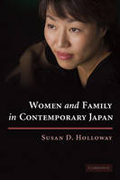
Japanese women, singled out for their commitment to the role of housewife and mother, are now postponing marriage and bearing fewer children. Japan has become one of the least fertile and fastest aging countries in the world. Why are so many Japanese women opting out of family life? To answer this question, the author draws on in-depth interviews and extensive survey data to examine Japanese mothers' perspectives and experiences of marriage, parenting, and family life. The goal is to understand how, as introspective, self-aware individuals, these women interpret and respond to the barriers and opportunities afforded within the structural and ideological contexts of contemporary Japan. The findings suggest a need for changes in the structure of the workplace and the education system to provide women with the opportunity to find a fulfilling balance of work and family life. INDICE: 1. 'Good wives, wise mothers': parenting and family life in cultural context; 2. Locating the research in space and time; 3. What is a wise mother?; 4. Hansei: the process of self-reflection; 5. Memories of childhood; 6. Husbands: crucial partners or peripheral strangers?; 7. Shitsuke: the art of childrearing; 8. Maternal involvement in children's schooling; 9. Balancing workand family life; 10. Women and family life: ideology, experience and agency.
- ISBN: 978-0-521-18037-5
- Editorial: Cambridge University
- Encuadernacion: Rústica
- Páginas: 256
- Fecha Publicación: 24/05/2010
- Nº Volúmenes: 1
- Idioma: Inglés
